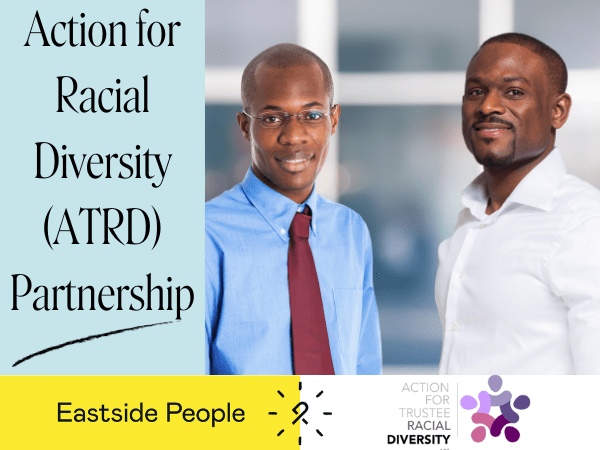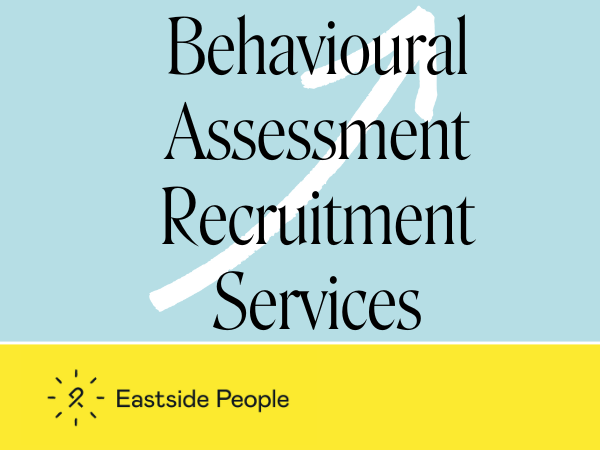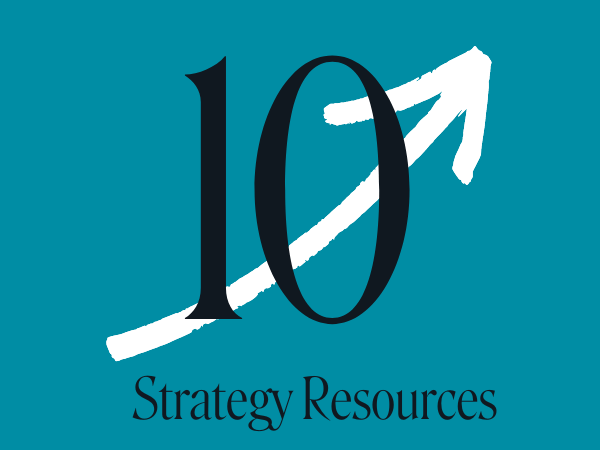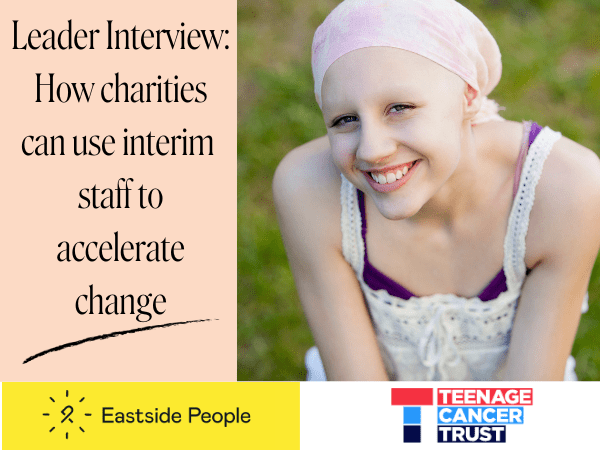Blog written by Eastside People consultant, experienced former Charity Chief Executive and Board Chair Stephen Elsden.
Trustee Boards can make or break a charity’s fortunes. Get your governance right, and trustees and staff can be aligned strategically and maximise your organisation’s social impact. Get it wrong, and miscommunication, strategic drift and low morale could cause your charity’s performance to rapidly decline.
I hope my five lessons and tips on how to get the best from your charity boards, will help your Trustees to feel engaged, supported and valued, and ensure that the governance of your charity is conducted with positivity and purpose.
- First impressions count
Recruiting Trustees is a challenge for most charities, so once you have an individual on board, ensure they are supported and can excel in the role. A planned induction is important here, creating time before and after that first Board meeting to see your services in action, and to meet with staff, volunteers and beneficiaries.
You can even invite your more established Trustees to come along on these induction visits, helping to develop their own relationship with the new Board member. Identifying a Board buddy to support your new Trustee for the first few months can help to alleviate any nervousness or feelings of isolation. This is particularly important if you have appointed a Trustee from your beneficiaries or another under-represented group.
- Everybody needs a purpose
You wouldn’t appoint a paid staff member without a job description, so if you value your Trustees, make sure they have clear roles and responsibilities. If you don’t know where to start, the Charity Commission website provides the legal context, but in isolation this can often come across as dry and off-putting.
If you have a current strategy, consider how each Trustee’s skills and experience will help you to achieve your objectives. In my experience, judicious use of sub-committees, for example on fundraising, or business development, can give each Trustee a chance to work more closely on particular areas, and remove the need for too much scrutiny of operational details at Board meetings. If you have a Risk Register in place, you can also assign certain Trustees to have a closer watching brief on specific risks depending on their skills and background.
- Remember that charity board meetings can be fun
Whether your charity’s Board is four people or a dozen, every Trustee has an individual contribution to make. Make time in the meeting to take soundings from everyone on key issues and consult with all Trustees ahead of meetings to put important topics on the face of the agenda. Nobody wants their pressing issue left to ‘any other business’ in the last 10 minutes of a two-hour Board meeting.
I have found a Trustee agreement a great tool to ensure good meetings and general Board behaviours. It sets out what the charity expects of Board members (such as Trustees to attend meetings, and if absent, to contribute comments on papers via the Chair) and what the charity will provide in return (such as timely information when requested, and Board papers at least two weeks before meetings). This agreement can also set out principles of the meetings themselves, for example, making them open, inclusive, patient, and fun.
- Relationships develop over time
In many charities and social enterprises, Trustees meet no more than four times a year, and in our post-Covid world, those meetings are often conducted online. While this may be an efficient way to deal with the essential legal requirements of a Board, it won’t provide the right conditions for Trustees to build strong, trusting relationships with each other.
In person meetings are essential for this, and if your charity is stuck in a rut of Zoom calls for Trustees, perhaps set up one or two in-person meetings in your annual cycle, with time before or after for some socialising. In this way, Trustees can explore common interests and opportunities beyond the set agenda of the Board meeting. If you also organise social events for staff, volunteers or beneficiaries, do invite Trustees to attend these, if possible, to deepen their connection with, and understanding of the charity.
- Learning is for life
The best charities ensure that all staff, and often volunteers, are supported with systems of supervision, learning and development, and opportunities to progress through the organisation and beyond. Taking a similar approach with Trustees and the collective Board should not be overlooked.
In a recent survey that I am working on (details in a follow-up blog), only 20% of responding charities said they had an annual Board appraisal. This is often down to low levels of self-awareness among Boards, who can spend so much time dealing with organisational challenges that they overlook the need for their own internal assessment and development plan. Resources for conducting Board appraisals and skills audits are available, including through Eastside People.
As the Charity Governance Code says, a board should review “its own performance and that of individual trustees, including the chair. This happens every year, with an external evaluation every three years.”
Boards, particularly Chairs, should also not forget to appraise the performance and development needs of their Chief Executive.
A good relationship between the Chair and Chief Executive is another critical driver of the impactful performance I highlighted at the outset of this blog. I am just embarking on a Co-Production project in my home county of Kent to create a toolkit for Chairs and Chief Executive, designed to strengthen and improve this relationship. I’ll share more about the learnings and outcomes from this project in a later blog.
About the author: Stephen Elsden, Director, Elsden Charity Consulting and Eastside People Consultant.
Stephen is an experienced former Charity Chief Executive and Board Chair, with nearly 35 years in the UK not for profit sector. He has worked extensively in local, national and international social care delivery organisations and those involved in international aid.
Find out more about Eastside People’s charity governance consultancy services.













